Unlock Best Credit Card Offers from 15+ lenders
Credit cards are issued by banks or credit card companies and are linked to a specific account in your name. When you use your credit card for a transaction, the amount is deducted from your available credit limit, and you’re required to repay the borrowed amount, along with any applicable fees or interest charges, by the due date specified on your monthly statement.
Types of Credit Card
Credit cards come in various forms, each designed to cater to different needs and spending habits. Here are some common types of credit cards:
- Standard Credit Cards: These are the most basic and widely used credit cards, offering a revolving line of credit for purchases and cash advances. They may or may not have rewards programs or additional benefits.
- Rewards Credit Cards: These cards offer rewards, such as cashback, points, or miles, for every purchase you make. The rewards can be redeemed for various perks, including merchandise, travel, or statement credits, making them popular among frequent shoppers and travelers.
- Travel Credit Cards: Designed specifically for frequent travelers, these cards often provide benefits like airport lounge access, travel insurance, and accelerated rewards for travel-related expenses.
- Secured Credit Cards: Secured credit cards require a refundable security deposit, which acts as your credit limit. They’re an excellent option for individuals with poor or limited credit history to build or rebuild their credit.
- Student Credit Cards: These cards are tailored for college students, offering lower credit limits, reduced fees, and sometimes rewards or incentives for good academic performance.
- Business Credit Cards: Intended for businesses, these cards help separate personal and professional expenses while providing additional perks like employee cards, expense tracking, and higher credit limits.

Shopping

Travel

Lifestyle

Rewards

Cashback

Fuel

Business
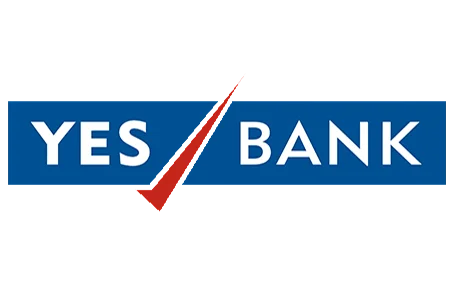

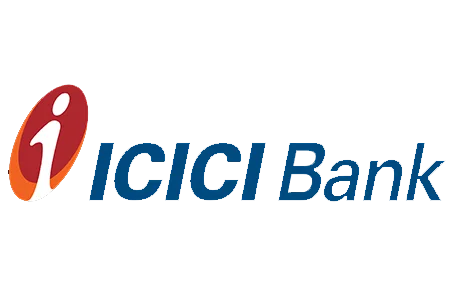
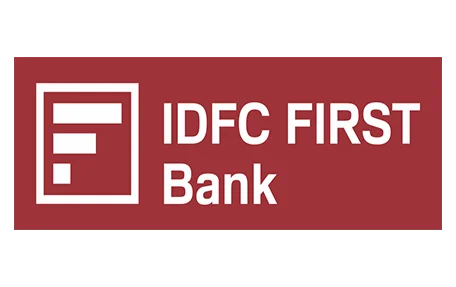
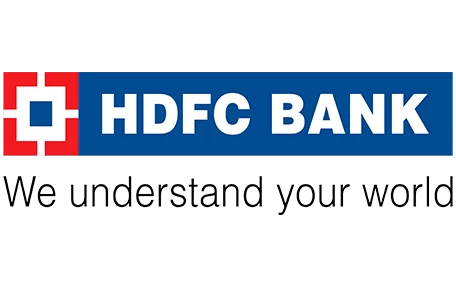

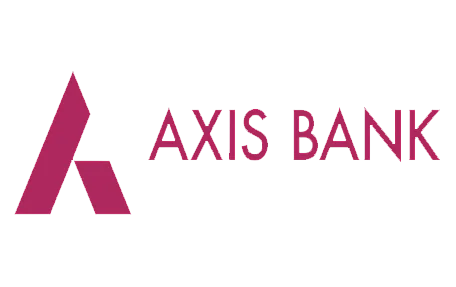
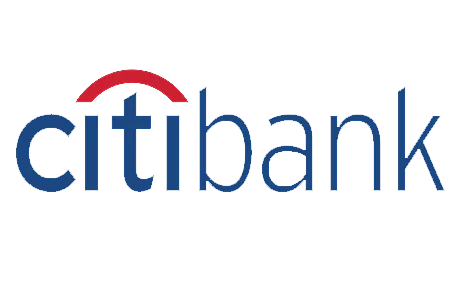



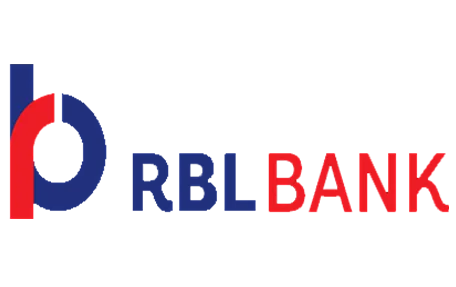

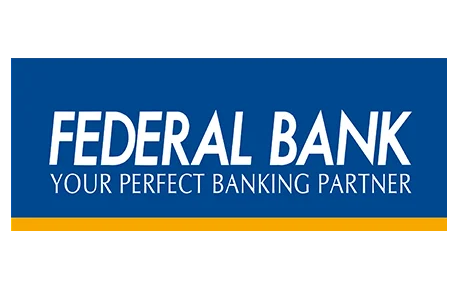
Benefits of Using Credit Cards
Credit cards offer numerous advantages over other payment methods, making them a popular choice for consumers and businesses alike:
- Convenience: Credit cards eliminate the need to carry large amounts of cash, making transactions more convenient and secure.
- Building Credit History: Responsible credit card usage can help establish and improve your credit score, which is essential for securing loans, mortgages, and other financial products in the future.
- Fraud Protection: Most credit card companies provide robust fraud protection measures, limiting your liability in case of unauthorized transactions or card theft.
- Rewards and Cashback: Many credit cards offer attractive rewards programs, allowing you to earn cashback, points, or miles on your purchases, which can be redeemed for various rewards.
- Purchase Protection: Some credit cards offer additional protection for your purchases, such as extended warranties, price protection, or return assistance, providing an extra layer of security for your transactions.
- Emergency Financing: Credit cards can serve as a valuable source of emergency financing, providing access to funds in case of unexpected expenses or emergencies.
- Record-Keeping: Credit card statements provide a detailed record of your purchases, making it easier to track and manage your expenses.
How do Credit Cards Work?
Making Purchases
- Whether you’re shopping online or swiping your card at a store, your credit card details are sent to the bank of the merchant.
- The bank then seeks authorization from the credit card network to process your transaction.
- Your card issuer then verifies your information and decides whether to approve or decline the transaction.
Transaction Approval:
- If the transaction is approved, the payment is made to the merchant, and the amount is deducted from your card’s available credit.
- At the end of your billing cycle, your card issuer sends you a statement summarizing all your transactions for the month, your previous balance, new balance, minimum payment due, and due date.
Grace Period:
- The grace period is the time between the date of your purchase and the due date listed on your statement.
- If you pay your bill in full within this period, no interest charges accrue.
Interest Charges:
- However, if you carry a balance from month to month, your card issuer may charge you interest.
- Your credit card’s annual percentage rate (APR) reflects the cost of carrying a balance on an annual basis, including your interest rate and other costs like an annual fee, if applicable.
Variable APR:
- Most credit cards in India have a variable APR tied to the prime rate, meaning your card’s APR can change over time.
Important information about Credit Cards
Borrowing Money:
- When you use a credit card, you’re essentially borrowing money from the bank to make purchases.
- Unlike a debit card where you’re spending your own money, with a credit card, the bank covers your expenses temporarily.
Credit Limit:
- Each credit card comes with a credit limit, which is the maximum amount of money you can borrow.
- Your credit limit is determined by factors like your income, credit history, and other financial details.
Making Purchases:
- When you swipe or insert your credit card to make a purchase, the merchant’s bank contacts your credit card issuer to verify the transaction.
- If the transaction is approved, the amount is added to your credit card balance.
Billing Cycle:
- Credit cards operate on billing cycles, typically monthly.
- Throughout the billing cycle, you can make purchases up to your credit limit.
Monthly Statements:
- At the end of each billing cycle, your credit card issuer sends you a statement detailing your purchases, payments, balance, and minimum payment due.
Minimum Payment:
- You’re required to make a minimum payment on your credit card balance by the due date specified on your statement.
- This minimum payment is usually a small percentage of your total balance or a fixed amount.
Interest Charges:
- If you don’t pay off your full balance by the due date, the remaining balance carries over to the next billing cycle and accumulates interest.
- Interest is calculated based on your average daily balance and your card’s annual percentage rate (APR).
Credit Score Impact:
- Your credit card usage and payment history impact your credit score.
- Timely payments and responsible credit card use can help improve your credit score, while missed payments can hurt it.
Rewards and Benefits:
- Many credit cards offer rewards programs, such as cashback, points, or miles, for every dollar spent.
- Some cards also provide additional benefits like travel insurance, purchase protection, or extended warranties.
Fees:
- Credit cards may come with fees such as annual fees, late payment fees, foreign transaction fees, and balance transfer fees.
- It’s essential to understand these fees and factor them into your decision when choosing a credit card.
How to get a Credit Card online?
Applying for a Credit Card
- Eligibility Criteria: Credit card issuers typically have specific eligibility criteria, such as age requirements, income thresholds, and credit score ranges. Familiarizing yourself with these criteria can help you choose the right card for your financial situation.
- Application Process: You can apply for a credit card online, over the phone, or in person at a bank or financial institution. The application process typically involves providing personal and financial information, including your name, address, employment details, and annual income.
- Credit History and Credit Score: Credit card issuers will review your credit history and credit score, which are indicators of your creditworthiness and ability to repay debt. A higher credit score generally increases your chances of approval and may qualify you for better terms and interest rates.
Credit Card Approval Process
Once you’ve submitted your credit card application, the issuer will evaluate your creditworthiness through a approval process:
- Verification: The credit card issuer will verify the information provided in your application, such as your identity, employment status, and income.
- Credit Inquiry: The issuer will perform a hard credit inquiry, which involves requesting your credit report from one or more of the major credit bureaus. This inquiry may temporarily impact your credit score.
- Decision: Based on the information gathered, the credit card issuer will make a decision to approve or deny your application. If approved, they will determine your credit limit and interest rate based on your credit profile and risk assessment.
Understanding Credit Limits and Interest Rates
Credit limits and interest rates are two crucial factors that influence the cost and effective use of your credit card:
- Credit Limit: The credit limit is the maximum amount of credit extended to you by the card issuer. It represents the maximum outstanding balance you can have on your credit card at any given time. Credit limits are determined based on factors like your income, credit history, and the credit card issuer’s policies.
- Interest Rates: Credit cards typically charge interest on any outstanding balances that are not paid in full by the due date. The interest rate, often referred to as the Annual Percentage Rate (APR), determines the cost of borrowing money on your credit card. Interest rates can vary depending on factors such as your credit score, the type of credit card, and the issuer’s policies.
It’s essential to understand that carrying a balance and accumulating interest charges can significantly increase the overall cost of using a credit card. To avoid or minimize interest charges, it’s recommended to pay your outstanding balance in full each month.
Credit Card Features and Rewards
Credit card issuers attract and retain customers by offering a wide range of features and rewards. These benefits not only improve the value proposition of credit cards but also fulfill the diverse needs and preferences of cardholders.
Cashback and Rewards Programs
Cashback and rewards programs are among the most popular and sought-after features of credit cards. These programs incentivize cardholders to use their credit cards for everyday purchases by offering tangible rewards in the form of cash or points that can be redeemed for a variety of products and services.
- Cashback Rewards: Cashback rewards are straightforward and appealing to many cardholders. With these programs, users earn a percentage of their purchases back in the form of cash, which can be credited to their account or received as a statement credit. The cashback rates can vary depending on the credit card issuer and the category of purchase, with higher rates often offered for specific spending categories like groceries, gas, or dining.
- Points-based Rewards: Points-based rewards programs allow cardholders to accumulate points for every dollar spent on their credit card. These points can then be redeemed for a wide range of rewards, such as merchandise, gift cards, travel, or even cash equivalents. Some credit card issuers partner with popular loyalty programs, enabling users to transfer their points and redeem them for flight tickets, hotel stays, or other travel-related perks.
- Tiered Rewards: Tiered rewards programs offer different levels of rewards based on the amount of spending or the type of purchases made. For example, some credit cards may offer higher rewards rates for certain spending categories like dining or entertainment, while others may provide bonus points or cashback for reaching specific spending thresholds within a billing cycle or year.
Travel Benefits and Perks
For frequent travelers and avid explorers, credit cards often come equipped with a host of travel-related benefits and perks.
- Airport Lounge Access: Many premium travel credit cards offer complimentary or discounted access to airport lounges worldwide, providing a comfortable and luxurious way to relax before or between flights. These lounges typically offer amenities like comfortable seating, Wi-Fi, refreshments, and sometimes even showers and private workspaces.
- Travel Insurance and Protection: Credit cards may provide various forms of travel insurance and protection, such as trip cancellation/interruption coverage, lost luggage protection, rental car insurance, and travel accident insurance. These benefits can provide peace of mind and financial protection in the event of unexpected travel disruptions or emergencies.
- Hotel and Rental Car Benefits: Some credit cards partner with major hotel chains and rental car companies to offer exclusive benefits like room upgrades, late check-out privileges, discounted rates, or complimentary elite status in loyalty programs.
- Global Entry and TSA PreCheck Credits: For frequent international travelers, credit cards may offer statement credits or reimbursements for the application fees associated with Global Entry or TSA PreCheck, expediting the security screening process at airports.
Exclusive Discounts and Offers
In addition to cashback and travel rewards, credit card issuers provide exclusive discounts and offers to their cardholders. These special deals can range from everyday savings on dining, entertainment, and retail purchases to limited-time promotional offers and experiences.
- Dining and Entertainment Discounts: Credit cards often partner with popular dining and entertainment establishments to offer discounts or special privileges to cardholders. These can include discounts on dining bills, complimentary appetizers or desserts, or access to exclusive events or pre-sale tickets.
- Retail Discounts and Offers: Cardholders may enjoy exclusive discounts and offers at various retail stores, both online and in-person. These can include percentage discounts, bonus rewards points, or special promotions on specific products or services.
- Limited-Time Experiences: Credit card issuers occasionally offer exclusive experiences or events to their cardholders, such as private concerts, culinary experiences, or access to VIP events. These limited-time offers can provide unique and memorable experiences for cardholders.
- Shopping Portals and Bonus Rewards: Some credit card issuers maintain online shopping portals where cardholders can earn additional rewards or cashback by making purchases through these portals with participating retailers.

Card Name
Joining: Nil
Renewal fee: Nil
Rewards: Nil
Welcome Benefits: Nil

Card Name
Joining: Nil
Renewal fee: Nil
Rewards: Nil
Welcome Benefits: Nil

Card Name
Joining: Nil
Renewal fee: Nil
Rewards: Nil
Welcome Benefits: Nil

Card Name
Joining: Nil
Renewal fee: Nil
Rewards: Nil
Welcome Benefits: Nil
Credit Card Usage and Best Practices
Making Payments and Avoiding Late Fees
One of the most important aspects of credit card usage is making payments on time. Failing to do so can result in costly late fees, damage to your credit score, and potential penalties from the credit card issuer.
- Understanding Due Dates: Each credit card statement will clearly indicate the due date for your payment. It’s essential to mark this date and ensure your payment is received by the credit card issuer on or before the due date.
- Minimum Payments: Credit card statements will also show the minimum payment due, which is the smallest amount you can pay without incurring late fees or penalties. However, paying only the minimum amount will result in accruing interest charges on the remaining balance, which can add up significantly over time.
- Automatic Payments: To avoid missing payments, consider setting up automatic payments from your bank account or enrolling in your credit card issuer’s automatic payment program. This ensures that at least the minimum payment is made on time each month.
- Payment Methods: Credit card issuers typically offer various payment methods, including online payments, bank transfers, and mailed checks. Choose the method that works best for you and ensure your payment is processed before the due date.
Building Credit History
Your credit history plays a crucial role in your overall financial well-being, affecting everything from loan approvals to interest rates and credit limits. Responsible credit card usage can help you build a strong credit history and improve your credit score over time.
- Payment History: Your payment history is the most significant factor in determining your credit score. Making payments on time and consistently demonstrates your creditworthiness to lenders and credit bureaus.
- Credit Utilization: Credit utilization refers to the amount of credit you’re using compared to your total available credit limit. Experts recommend keeping your credit utilization below 30% to maintain a positive impact on your credit score.
- Credit Mix: Having a mix of different types of credit accounts, such as credit cards, loans, and mortgages, can positively influence your credit score as it demonstrates your ability to manage different types of credit responsibly.
Credit Age: The length of your credit history also plays a role in your credit score. Keeping older credit accounts open and active can help increase the average age of your credit accounts, which is viewed favorably by lenders.
Responsible Credit Card Usage
While credit cards offer convenience and flexibility, it’s essential to develop responsible habits to avoid falling into debt and damaging your financial health.
- Budgeting and Spending Control: Before using your credit card, consider your budget and spending limits. Developing a realistic budget and sticking to it can help prevent overspending and accumulating unmanageable debt.
- Avoiding Cash Advances: Cash advances from credit cards often come with higher interest rates and fees. It’s best to avoid using your credit card for cash advances unless absolutely necessary.
- Monitoring Statements: Regularly review your credit card statements to ensure all charges are accurate and to monitor your spending habits. Identify areas where you may be overspending and make adjustments accordingly.
- Avoiding Impulse Purchases: Credit cards can make it tempting to make impulse purchases. Before making a purchase, ask yourself if it’s a need or a want, and consider the long-term implications of the purchase.
- Seeking Help if Needed: If you find yourself struggling with credit card debt or unable to make payments, don’t hesitate to seek help from a credit counseling service or financial advisor. They can provide guidance and strategies to help you get back on track.
Credit Card Security and Fraud Protection
With the rise of sophisticated cybercriminals, safeguarding your credit card information now has become more crucial than ever.
- Safeguarding Your Credit Card Information: Your credit card information is the key to accessing your financial accounts, and it’s essential to treat it with the utmost care. Never share your credit card number, expiration date, or CVV (Card Verification Value) with anyone who contacts you unsolicited, whether by phone, email, or text message. These details should be kept confidential and only provided during legitimate transactions, such as when making a purchase or setting up automatic payments.
It’s also crucial to be mindful of your surroundings when using your credit card, especially in public places. Avoid making transactions in crowded areas or when someone is standing too close to you. Be cautious of card skimming devices, which can be installed on ATMs or point-of-sale terminals to steal your card information.
- Reporting Lost or Stolen Cards: If your credit card is lost or stolen, act quickly to minimize the potential damage. Immediately contact your credit card issuer to report the incident and request a replacement card. Most credit card companies have 24/7 customer service lines or online reporting tools to make this process as seamless as possible.
- Recognizing and Preventing Credit Card Fraud: Credit card fraud can take many forms, from unauthorized charges on your account to identity theft. Familiarize yourself with common fraud tactics, such as phishing scams, skimming devices, and data breaches, to better identify and prevent these threats.
Be vigilant when reviewing your credit card statements, looking for any suspicious activity or charges you don’t recognize. If you notice any irregularities, contact your credit card issuer immediately to dispute the charges and initiate an investigation.
Additionally, consider enrolling in credit monitoring services or setting up fraud alerts with the major credit bureaus. These tools can help you stay informed about any changes to your credit profile and detect potential fraud early on.
Credit Card Alternatives
Debit Cards
Debit cards have become a popular alternative to credit cards, particularly for those who want to avoid the temptation of overspending or accumulating debt. Debit cards are linked directly to your bank account, allowing you to make purchases and withdrawals using your own funds. This can help you better manage your finances and avoid interest charges or late fees associated with credit cards.
- One of the key benefits of debit cards is that they help you stay within your budget. Since the funds are immediately deducted from your checking account, you can’t spend more than you have available. This can be especially helpful for those who may struggle with impulse purchases or have difficulty sticking to a budget.
- Another advantage of debit cards is that they often come with additional security features, such as chip-and-PIN technology, which can help protect your accounts from fraud and unauthorized use. Many banks also offer fraud protection and liability coverage for debit card transactions, providing an added layer of security for your finances.
Prepaid Cards
Prepaid cards have also emerged as an alternative to traditional credit cards, particularly for those with poor or no credit history. Prepaid cards work by allowing you to load a specific amount of money onto the card, which you can then use to make purchases or withdraw cash.
- One of the key benefits of prepaid cards is that they can help you avoid the temptation of overspending or accumulating debt. Since the card only allows you to spend the funds you’ve already loaded onto it, you can’t exceed your available balance. This can be especially helpful for those who are trying to develop better financial habits or rebuild their credit.
- Prepaid cards can also be a convenient option for those who don’t have access to a traditional bank account or who prefer to keep their spending separate from their primary accounts. Many prepaid cards also offer features like mobile apps, online account management, and the ability to reload funds as needed.
Digital Wallets and Mobile Payments
The rise of digital wallets and mobile payment technologies has also provided consumers with an alternative to traditional credit cards. These platforms, such as Apple Pay, Google Pay, and Samsung Pay, allow you to securely store your payment information on your smartphone or other mobile device and use it to make purchases.
- One of the key advantages of digital wallets and mobile payments is the added security they provide. These platforms typically use advanced encryption and tokenization technologies to protect your payment information, reducing the risk of fraud and unauthorized use. Additionally, many of these platforms offer additional features like transaction tracking, spending analysis, and the ability to easily manage multiple payment methods.
- Another benefit of digital wallets and mobile payments is the convenience they offer. With these technologies, you can make purchases quickly and easily without having to fumble with your physical wallet or credit cards. This can be especially useful for on-the-go transactions or situations where you may not want to carry a physical wallet with you.
Credit Card Myths and Misconceptions
Debunking Common Credit Card Myths
- One of the most pervasive myths is that credit cards are inherently bad for your financial well-being. This couldn’t be further from the truth. Credit cards, when used responsibly, can be a valuable financial tool that offers convenience, fraud protection, and even rewards. The key is to understand how to manage them effectively and avoid falling into common traps.
- Another widespread misconception is that credit cards are only for those with high incomes. In reality, credit cards can be beneficial for people across the income spectrum, as long as they use them within their means and pay their balances in full each month. Many credit card issuers offer cards tailored to different financial situations and credit profiles.
- Many people also believe that carrying a balance on their credit card is necessary to build a good credit score. This is a myth. In fact, carrying a balance and paying interest can actually hinder your credit score. The best way to build credit is to use your card responsibly, keep your utilization low, and pay your bills on time.
- It’s also a common misconception that closing a credit card will automatically improve your credit score. This is not the case. Closing a card can actually have a negative impact on your credit utilization ratio and the length of your credit history, both of which are important factors in calculating your credit score.
- Some people think that using a credit card means you’re automatically spending more than you would with cash. While it’s true that credit cards can make it easier to overspend, this is not an inherent flaw of the card itself. With discipline and budgeting, credit cards can be used to manage your finances effectively and even earn rewards on your everyday purchases.
By understanding these common myths, you can make informed decisions about using credit cards as a valuable tool in your personal finance arsenal.
Things Searched most about Credit Cards
Pros and Cons of Credit Cards
Pros:
- Convenient and secure method of payment for purchases
- Helps build credit history and improve credit score
- Offers various rewards and cashback programs
- Provides purchase protection and extended warranties
- Allows for easier management of expenses and budgeting
- Provides access to emergency funds in times of need
Cons:
- Risk of overspending and accumulating debt
- Annual fees and other charges can be high
- Potential for identity theft and fraudulent transactions
- Interest rates on outstanding balances can be steep
- May impact credit score if not managed responsibly
- Requires diligent financial discipline to avoid late payments
Eligibility Criteria for Credit Cards
- Minimum age requirement (typically 18-21 years)
- Minimum monthly or annual income requirement
- Stable employment or source of income
- Good credit history and credit score
- Residential and identity proof documents
- PAN (Permanent Account Number) card
- Bank account details
- Banks and financial institutions may have additional criteria based on their policies and target customer segment.
Documents Required for Credit Card
- Completed and signed credit card application form
- Government-issued photo ID (Aadhaar card, PAN card, driver's license)
- Proof of address (utility bill, bank statement, or rental agreement)
- Proof of income (salary slips, bank statements, or tax returns)
- Passport-sized photograph
- Canceled cheque or bank account details
- The specific document requirements may vary among different credit card issuers.
How to Apply for a Credit Card Online?
- Visit the kredit4all and navigate to the online application section.
- Fill out the application form with your personal, financial, and contact information.
- Provide the required documents by uploading scanned copies or images.
- Select the credit card plan that best suits your needs and preferences.
- Review and confirm the application details before submitting.
- Wait for the issuer to process your application and provide a decision.
- If approved, receive your credit card within the specified timeframe.
- Some issuers may also allow you to apply for a credit card directly through their own website or domain.
What is a Credit Card Statement?
A credit card statement is a periodic report provided by the credit card issuer that summarizes your credit card account activity for a specific billing cycle. It typically includes the following information:
- Summary of transactions: Purchases, cash advances, balance transfers, and payments made during the billing cycle
- Current balance: The total amount owed on the credit card
- Minimum payment due: The minimum amount required to be paid by the due date
- Payment due date: The date by which the minimum payment must be made
- Interest charges: The amount of interest accrued on the outstanding balance
- Fees: Any annual, late, or other fees charged by the issuer
- Available credit: The remaining credit limit on the card
Credit card statements help cardholders track their spending, manage their budget, and ensure the accuracy of transactions.
Steps to Select the Right Credit Card for You
- Determine your spending habits and financial goals: Consider the types of purchases you make, the amount you spend, and whether you're looking for rewards, cash back, or low-interest rates.
- Evaluate the credit card features: Look at the annual fee, interest rates, rewards programs, sign-up bonuses, and any additional benefits offered by the card.
- Compare cards from different issuers: Research and compare credit card options from banks, fintech companies, and other financial institutions to find the best fit.
- Consider your credit score and history: Choose a card that matches your credit profile and will help you build or maintain a good credit score.
- Understand the terms and conditions: Carefully review the card's policies, fees, and any limitations or restrictions on the rewards or benefits.
- Prioritize your needs and preferences: Decide which features are most important to you, such as rewards, low interest rates, or travel benefits.
- Apply for the selected credit card: Complete the application process and provide the necessary information and documents.
Credit Card Bill Payments
- Log in to your credit card issuer's online portal or mobile app.
- Navigate to the "Bill Payments" or "Make a Payment" section.
- Enter the payment amount you wish to make, either the full statement balance or a partial amount.
- Select the bank account from which you want to make the payment.
- Confirm the payment details and schedule the payment, ensuring it's made before the due date to avoid late fees and penalties.
- You can also set up automatic payments or recurring payments to ensure timely bill payments.
- Keep track of your payment history and credit card statement to monitor your spending and ensure accuracy.
Remember to make payments on time and within your budget to maintain a good credit history and avoid any unnecessary charges.
Get Credit Card usage guides & much more –
FAQs
A credit card is a payment instrument that allows you to borrow money from a financial institution, usually a bank or a credit card company, to make purchases or withdraw cash. It enables you to access a line of credit, which you can use and repay over time, typically with interest charges applied to the outstanding balance.
Yes, you can easily apply for and get a credit card online these days. Most major banks and credit card issuers have user-friendly online application processes that allow you to submit your details and get approved for a credit card without having to visit a physical branch.
No, you don't necessarily need to use your credit card every month. However, it's generally a good idea to use it periodically to keep the account active and maintain a healthy credit history. Just make sure to pay the balance in full each month to avoid interest charges.
The minimum age to apply for a credit card in most countries is 18 years old. Some issuers may have slightly higher age requirements, such as 21 years old, but 18 is the standard minimum age for credit card applications.
You can use your credit card at an ATM to obtain cash advances, but keep in mind that this will typically incur interest charges immediately, unlike regular purchases which have a grace period. To use your credit card at an ATM, simply insert the card, enter your PIN, and follow the on-screen instructions to complete the cash withdrawal.
Most major credit card issuers, including Visa, Mastercard, American Express, and Discover, offer cards that are compatible with Google Pay. You can typically add your credit card to the Google Pay app and then use your phone to make contactless payments at supported merchants.
A credit card number is a unique set of digits, usually 16 in total, that identifies your specific credit card account. This number is used to process transactions, both in-person and online. It's an important piece of information that should be kept secure to prevent unauthorized use.
Credit cards often come with built-in fraud protection measures, such as zero liability for unauthorized charges. If you ever notice any suspicious activity on your credit card, you should report it immediately to your card issuer, who will investigate and typically reverse any fraudulent transactions.
If you notice an unauthorized transaction on your credit card, you should contact your card issuer right away. They will usually be able to reverse the charge and issue you a new card with a different number to prevent further unauthorized use.
It is generally not advisable to transfer money directly from your credit card to your bank account, as this would be considered a cash advance and incur interest charges immediately. Instead, it's better to pay your credit card bill from your bank account to avoid these fees.
A revolving credit facility, such as a credit card, is a type of credit that allows you to borrow money up to a predetermined limit, repay it, and then borrow again as needed. This provides flexibility in managing your finances, as you can access the available credit multiple times without having to reapply.
The application process for a credit card can typically be completed online in 10-15 minutes. However, the time it takes to receive the physical card can vary, usually between 7-14 business days, depending on the card issuer and your location.
Yes, many credit card issuers do charge a foreign transaction fee for using your card for purchases or withdrawals outside of your home country. The fee is usually around 1-3% of the total transaction amount. It's important to check the terms and conditions of your specific credit card to understand any international transaction fees.
Credit card issuers typically offer a grace period, usually around 20-25 days, during which you can pay your balance in full without incurring any interest charges. However, if you carry a balance from month to month, you will be charged interest on your purchases, usually at a relatively high annual percentage rate (APR).
Most credit card providers offer online or mobile banking tools that allow you to track your spending and set spending limits or alerts. You can also review your monthly statements to monitor your transactions and identify any unusual activity. Additionally, budgeting apps can help you stay on top of your credit card usage and spending habits.
Yes, many premium credit cards, such as those with an annual fee, often come with airport lounge access benefits. This allows cardholders to enjoy complimentary access to airline lounges at airports, where they can relax, enjoy refreshments, and sometimes even take advantage of other amenities before their flights.
Yes, you can continue using both your primary credit card and any add-on cards (also known as authorized user cards) that are linked to your account. Add-on cards are often issued to family members or others, and they allow those individuals to make purchases that will be billed to your primary credit card account.
